. high in the Twin Cities Thursday.
. average high on July 18.
. high on July 18, 2012.
in effect far southeastern Minnesota (but not in the Twin Cities).
dew points return by tomorrow.
still looks like the nicer (drier) day of the weekend; temperatures probably holding in the 70s.
"...
Every year dozens of U.S. children & untold
numbers of pets left in vehicles die from extreme heat, or
"hyperthermia". This occurs even on mild days; a localized greenhouse
effect inside cars able to warm temperatures from 70s to 90s in a couple
of minutes.
NOAA ran a test; with an outside temperature of
80F temperatures inside a vehicle reached a deadly 123F in 60 minutes.
Cracking a window doesn't help. The effects on kids can be more severe
because their bodies warm at a faster rate than adults. Bottom line:
never leave a child (or pet) unattended in a vehicle.
Blast-furnace heat relaxes its grip on Minnesota
today as winds shift to the northwest. An early T-shower is possible,
but skies brighten by afternoon as dew points drop into the 60s today -
reaching comfortable 50s by Saturday, the nicer day of the weekend.
An ill-timed warm front sparks more showers
& T-storms Sunday; have a Plan B for part of the day. Next week
looks cooler and stormier, in fact severe weather season may spill over
into August as our delayed summer limps on.
In the weather blog (below): the CIA is
interested in geo-engineering the climate. And a lawn mower that goes
130 mph. Now that's progress.
Cooling Off. Not a moment too
soon. Expect highs in the upper 70s Saturday, possibly mid to upper 70s
Sunday with the best chance of showers and a few embedded T-showers in
the morning. Expect cooler weather next week, the best chance of
showers/storms Wednesday, again Friday, based on ECMWF guidance above.
No more blast-furnace heat is in sight looking out 10 days or so.
Canadian Relief. We spend much
of the winter bashing Canada (the source of all those horrific arctic
fronts). Over the next 48 hours we should be thanking our friends to
the north, not that they had anything to do with this latest push of
cooler, drier air. Showers and T-storms push across the Great Lakes,
and the Northeast finally cools off late Saturday and Sunday. 84 hour
NAM loop above courtesy of NOAA.
Avoidable Tragedies. The photo credit at the top of the weather blog is from
St. Luke's,
which has more good information on steps you can take to lessen the
risk of accidently leaving an infant or child in a vehicle; here's an
excerpt:
- Never leave an infant or child unattended in a vehicle even if the windows are partially open or the air conditioning is on.
- Do not let your children play in an unattended vehicle. Teach them that a vehicle is not a play area.
- Make a habit of looking in the vehicle – front and back – before locking the door and walking away.
- Always lock vehicle doors and
trunks and keep keys out of children’s reach. If a child is missing,
check the vehicle first, including the trunk.
- If you are bringing your child to
daycare, and normally it’s your spouse or partner who brings them, have
your spouse or partner call you to make sure you dropped the child
off.
- Ask your childcare provider to call you if your child does not show up for childcare.
- Do things to remind yourself that a child is in the vehicle, such as:
- Writing yourself a note and putting the note where you will see it when you leave the vehicle;
- Placing your purse, briefcase or
something else you need in the back seat so that you will have to check
the back seat when you leave the vehicle; or
- Keeping an object in the car seat,
such as a stuffed toy. When the child is buckled in, place the object
where the driver will notice it when he or she is leaving the vehicle.
June 2013 Global Climate Update. Here's a clip from NOAA's climate.gov:
"In June 2013, many areas of the world experienced higher-than-average monthly temperatures. According to the latest statistics
from NOAA’s National Climatic Data Center, the globally averaged
temperature for the month tied with 2006 as the fifth warmest June since
record keeping began in 1880. It also marked the 37th
consecutive June and 340th consecutive month—that’s a total of more
than 28 years—with a global temperature above the 20th-century average. The last below-average June temperature was June 1976 and the last below-average temperature for any month was February 1985..."
The map above shows temperatures relative to average across
the globe for June 2013. Shades of red indicate temperatures up to 11°
Fahrenheit warmer than the 1981–2010 average and shades of blue
indicate temperatures up to 11° Fahrenheit cooler than the average.
Record Heat In June Extends Globe's Streak To 340 Months. Meteorologist Andrew Freedman from
Climate Central has more details on the findings for June; here's a clip: "
Global
average surface temperatures during June were either the second or
the fifth-warmest on record for the month, based on analyses by NASA and NOAA,
respectively. The two agencies keep tabs on global temperature trends
using large networks of surface monitoring stations and statistical
approaches to fill in gaps where stations are sparse, but they use
slightly different methods to analyze the data, which can result in
slight differences in their rankings. June continued the long-term
warming trend tied to manmade greenhouse gas pollution as well as
natural climate variability. The planet has not recorded a single month
with temperatures below the 20th century average since February 1985,
when the cult classic film “The Breakfast Club”
was released, and the last year with a cooler-than-average June was
in 1976. This year so far is tied with 2003 as the seventh-warmest
year on record, NOAA said..." (Image above: NASA).
Interior Chief Says Drought May Cause Record Wildfires In U.S.
Bloomberg has the story. Image credit: DNR.
Bill To Shift NOAA Resources To Weather Marches On.
I'm all for having more powerful and accurate weather models, but
coming at the expense of climate modeling? Not sure that's an inspired
idea. Here's a clip from Andrew Freedman at
Climate Central: "
A
House bill that would mandate the nation’s top weather and climate
agency shift its priorities more toward short-term weather forecasting
has sped its way through the legislative process. The House Science
Committee is expected to consider it in the next few weeks. The bill is
aimed at changing how the National Oceanic and Atmospheric
Administration (NOAA) prioritizes its missions of weather, climate and
ocean science. Critics of the bill say that prioritization will
shortchange long-term climate research in favor of improving forecasts
of extreme weather..."
GPS Reveals Hurricane Wind Speeds. My goal with the
blog is to go beyond the forecast, and try to explain some of the data
and reasoning behind the 7-Day. I also include articles I stumble
across during the course of my day, stories that made me do a
double-take, like this one from
National Geographic.
60% of a GPS satellites's signal bounces off surfaces, including the
ocean surface. That has implications (for measurement of wind speed).
Here's an excerpt: "
Scientists have a new way to measure how fast
the wind is blowing. That's because over the past decade, scientists
have learned how to measure the speed of the wind at the ocean's
surface by observing how much GPS signals are distorted when bouncing
off the moving water waves. Now, a new paper reports that such wind
speed measurements can be used with confidence when conditions are
right, even to measure the winds of hurricanes. Improved wind speed
measurements could help meteorologists better understand and predict
storms, says Stephen Katzberg, a distinguished research associate at
the NASA Langley Research Center in Hampton, Virginia..."
Photo credit above: "
A truck in Key West, Florida is bombarded by wind and rain during a hurricane." Photograph by Mike Theiss, National Geographic
The CIA Wants To Know How To Control The Climate. Geo-engineering climate may be a technological savior, or a dangerous pipe-dream, right?
The Verge
and Mother Jones have a fascinating story on how the CIA and how they
are taking a morphing climate very seriously; here's the intro: "
The
US Central Intelligence Agency isn't just interested in gathering
intelligence on foreign powers and enemies. As it turns out, Langley is
also investigating the feasibility of altering the environment to
fight the effects of climate change. The CIA is currently funding, in
part, a $630,000 study on geoengineering, the science of using experimental techniques to modify Earth's climate, as Mother Jones
reports. The 21-month-long study was commissioned by the National
Academy of Sciences, a nonprofit group of scientific advisors to the
government, and a final report on its findings is due to be published in
the fall of 2014..."
"Timelapse Earth" Will Leave You Humbled. This may be the best 4 minutes you spend today, courtesy of
fstoppers.com: "
Man
(or woman) can only dream what it looks like hovering above earth
watching the beauty of science orbit beneath them. Thanks to the ISS
(International Space Station) we have the next best thing, a timelapse.
“Some interesting tidbits about the ISS. It orbits the planet about
once every 90 mins and is about 350 Km/217 miles. The yellow/greenish
line that you see over the earth is Airgolw. All footage has been color
graded, denoised, deflickered, slowed down and stabilized by Bruce W. Berry.
Clips were then complied and converted to 1080 HD at 24 frames/sec.
Read on to learn what cameras they use and more info about the ISS...”
9 Most Common Regrets Of The Living And Dying - And What To Do About Them.
My goal (like so many others) is to live a life of no regrets, to not
look back and say "could-have, should-have, would-have". That's why I
found this story from
Next Avenue so interesting; here's a clip: "
In
spending time with patients during the last three to 12 weeks of
their lives, Ware gleaned vital insight into the concerns and regrets
of those faced with imminent death. Here are the core regrets as she
describes them in her Inspiration and Chai blog.
1. I wish I'd had the courage to live a life true to myself, not the life others expected of me.
This was the most common regret of all. When people realize that
their life is almost over and look back clearly on it, it is easy to see
how many dreams have gone unfulfilled. Most people had not honored
even a half of their dreams and had to die knowing that it was due to
choices they had made, or not made.
It is very important to try and honor at least some of your dreams
along the way. From the moment that you lose your health, it is too
late. Health brings a freedom very few realize, until they no longer
have it..."
The Neuroscience Of Everybody's Favorite Topic. Why do we like talking about ourselves so much? This article from Scientific American explains the popularity of Facebook, come to think of it - here's an excerpt: "Human beings are social animals. We spend large portions
of our waking hours communicating with others, and the possibilities
for conversation are seemingly endless—we can make plans and crack
jokes; reminisce about the past and dream about the future; share ideas
and spread information. This ability to communicate—with almost
anyone, about almost anything—has played a central role
in our species’ ability to not just survive, but flourish. How do you
choose to use this immensely powerful tool—communication? Do your
conversations serve as doorways to new ideas and experiences? Do they
serve as tools for solving the problems of disease and famine? Or do you
mostly just like to talk about yourself?..."
Extreme Mowing. 0 to 60 in 4 seconds. On a lawn mower? Why not.
Gizmag.com has the details; here's a clip: "
Billed
as world’s fastest lawn mower, the Mean Mower is a (heavily) modified
version of on Honda’s HF260 Lawn Tractor that can make 0-60 mph (96
km/h) in 4.0 seconds – fast enough to put most exotic full-sized autos
to shame. This racy take on the riding mower develops 96 Nm (70
lb.ft) of torque, 109 hp (which gives it roughly 100 more ponies than
most of its lawn tractor brethren) and has a power-to-weight ratio of
532 bhp/tonne thanks to a weight of only 140 kg (308 lb). To keep the
whole thing legit, grass cutting remains very much a part of the
equation. Yes it still cuts grass, but only at speeds up to 15 mph (24
km/h). But once the lawn has been carefully manicured then feel free
to take it out on the local autobahn and run it out to an (estimated)
130 mph (209 km/h). Helmet recommended..."
Photo credit above: "
Honda’s one-off HF260 Lawn Tractor is capable of reaching 60 mph (96 km/h) in 4.0 seconds."
Lost Wheels Playing At The Fine Line. Yes, it's my favorite local group, and yes, I'm a little biased, but only a little. But if you haven't heard
The Lost Wheels yet you owe it to yourself to check them out at
The Fine Line Friday evening. They have a unique sound, and I predict you'll be impressed. I hope to see you there.
TODAY: Early thunder possible, then clearing, turning slightly cooler and less humid. Dew point: 66. Winds: NW 10-20. High: 86
FRIDAY NIGHT: Clear to partly cloudy, more comfortable. Low: 65
SATURDAY: The nicer day of the weekend. Partly sunny. Winds: NW 5-10. Dew point: 56. High: near 80
SATURDAY NIGHT: Clouds increase, risk of a shower or T-storm late. Low: 63
SUNDAY: Mostly cloudy. A few showers & T-storms are likely. High: 77
MONDAY: Intervals of sticky sun, warming up. Dew point: 68. Wake-up: 67. High: 87
TUESDAY: Still muggy, spotty T-storms. Wake-up: 69. High: 88
WEDNESDAY: Unsettled, few T-storms likely. Wake-up: 68. High: 85
THURSDAY: Hazy sun, more humidity complaints. Wake-up: 69. High: 89
Climate Stories...
Reid Blames Climate Change: "West Is Burning". Here's a clip from
The Las Vegas Review-Journal: "
As
firefighters head home from Southern Nevada, U.S. Sen. Harry Reid on
Wednesday blamed “climate change” for the intense blaze that consumed
nearly 28,000 acres and drove hundreds of residents from their homes
around Mount Charleston this month. Reid said the government should be
spending “a lot more” on fire prevention, echoing elected officials who
say the Forest Service should move more aggressively to remove brush
and undergrowth that turn small fires into huge ones. “The West is
burning,” the Nevada Democrat told reporters in a meeting. “I could be
wrong, but I don’t think we’ve ever had a fire in the Spring Mountains,
Charleston range like we just had. “Why are we having them? Because we
have climate change. Things are different. The forests are drier, the
winters are shorter, and we have these terrible fires all over the West....”
Photo credit above: JOHN LOCHER/LAS VEGAS REVIEW-JOURNAL. "
The
Carpenter 1 Fire burns in the mountains behind the Red Rock
Conservation Area visitor center near Las Vegas early in the morning of
Thursday, July 11. The fire has forced the closure of the Red Rock
National Conservation Area Scenic Loop."
The Era Of Corporate Silence On Climate Policy Is Ending. The
Harvard Business Review has the story; here's the introduction: "
Tackling climate change is one of America's greatest economic opportunities." So proclaims the Climate Declaration,
a public statement signed by a fast-growing list of U.S. corporate
giants, including GM, Nike, Intel, Starbucks, Unilever, eBay, Swiss Re,
and even The Weather Channel. This new attempt to encourage companies
to lobby for climate action is gaining steam. President Obama gave the
movement a boost in June when he highlighted the declaration in his big climate speech. More companies are taking a proactive role in climate policy, and for good reasons..."
Saudi Arabia Aims To Become The World's Largest Renewable Energy Market.
I had a vaguely out of body experience when I came across this
headline. Saudi Arabia? World's biggest renewable energy market? It
probably makes sense. All that sunshine, and a gradually depleting
natural resource of oil under their feet - The Kingdom probably has the
right idea here, as explained at
arabnews.com: "
Saudi
Arabia aims to become the world’s foremost market for renewable energy
with an aggressive investment budget of $109 billion. By 2032, the
country strives to generate as much as a third of the Kingdom’s energy
demands using renewable energy (54 GW). Following the publicity
surrounding the country’s major investment drive, King Abdullah City
for Atomic and Renewable Energy (KACARE) released a series of documents
detailing the revised National Energy Plan. In addition to the 41 GW
of solar power, 25 GW of CSP and 16 GW of PV, the Kingdom is aiming to
generate 18 GW of nuclear energy, 3 GW of waste to energy, 1 GW of
geothermal and an additional 9 GW of wind power, specifically for water
desalination plants..."
Photo credit above: "
By 2032, Saudi Arabia strives to generate as much as a third of the country's energy demands using renewable energy."
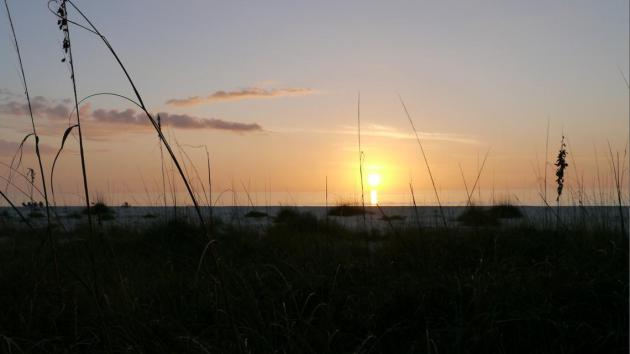
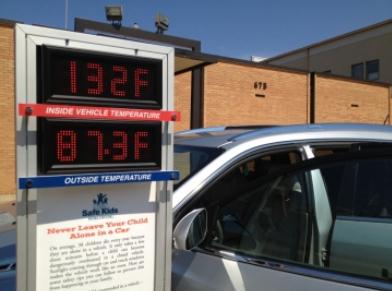

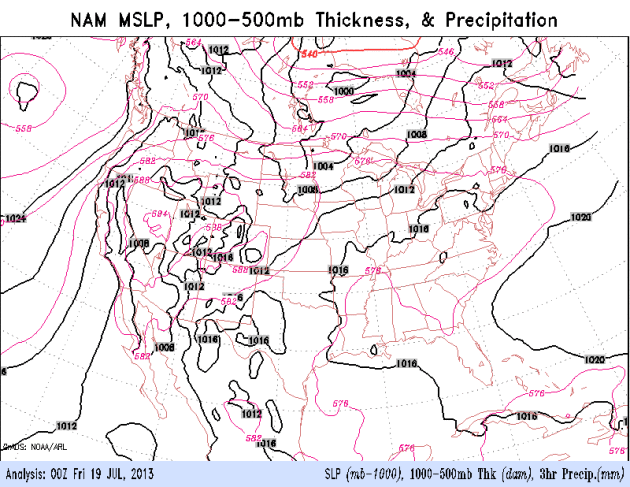

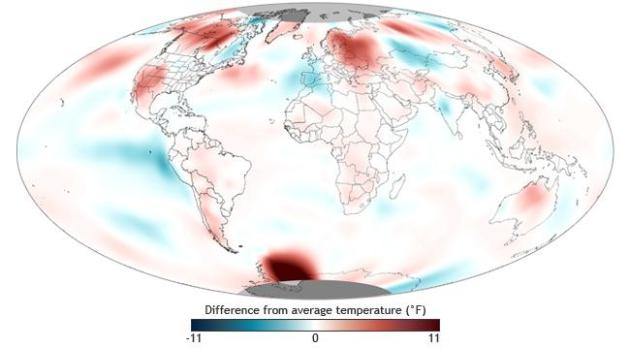

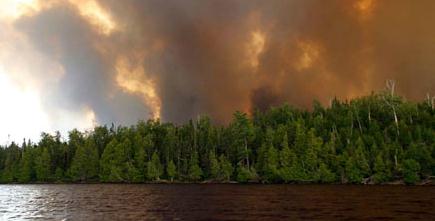
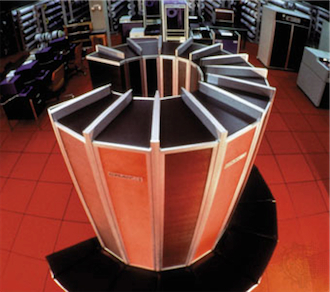
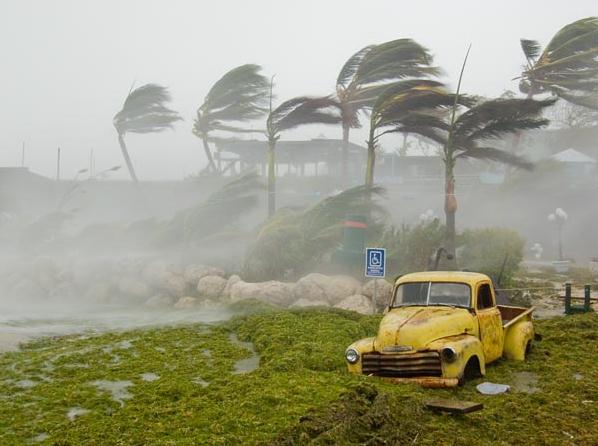

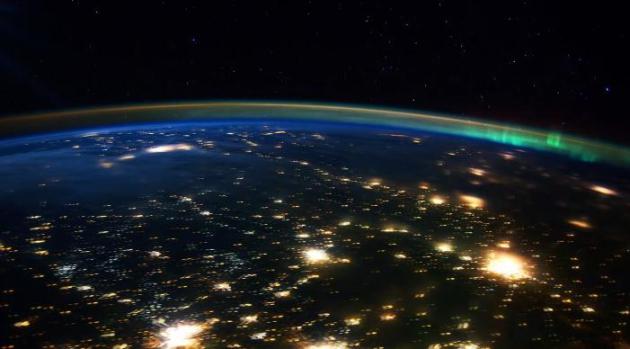





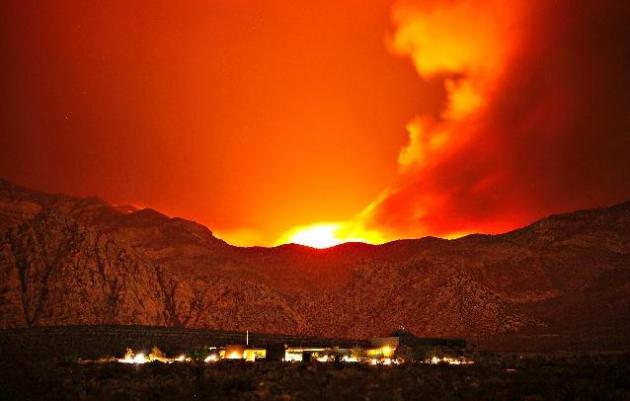

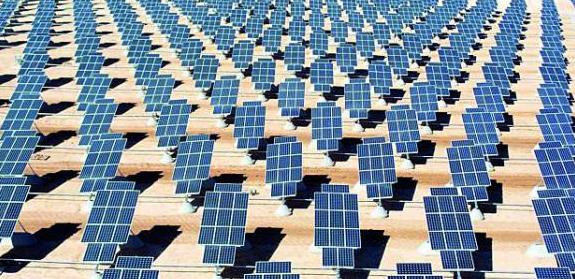
No comments:
Post a Comment